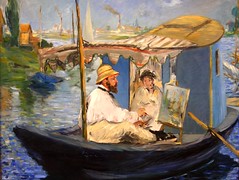AMSCO United States History 2015 Edition, Chapter 18 The Growth of Cities and American Culture, 1865-1900
| 5987884489 | causes of immigration | Forces in the United States driving this process were (1) political and religious freedom, (2) economic opportunities in the western U.S. and cities, (3) large steamships offered relatively inexpensive transportation. |  | 0 |
| 5987884490 | old immigrants | Through the 1880s, they came to the United States from northern and western Europe. They were mostly Protestant and had a high-level of literacy. |  | 1 |
| 5987884491 | new immigrants | From the 1890s to 1914, they came to the United States from southern and eastern Europe. Mostly non-Protestant, poor and illiterate. |  | 2 |
| 5987884494 | Immigration Act of 1882 | In 1882, this act placed restrictions on the immigration of undesirable persons, such as paupers, criminals, convicts, and mentally incompetent. |  | 3 |
| 5987884495 | Contract Labor Act of 1885 | Restricted the immigration of temporary workers, to protect American workers. |  | 4 |
| 5987884496 | American Protective Association | A nativist society that was prejudiced against Roman Catholics. |  | 5 |
| 5987884497 | Ellis Island | An immigration center opened in 1892 in New York Harbor. |  | 6 |
| 5987884499 | cause of migration | (1) Displaced farmworkers by political turmoil and mechanization, (2) Overcrowding due to population boom, (3) Religious persecution. |  | 7 |
| 5987884500 | streetcar cities | In these cities, people lived in residences many miles from their jobs and commuted to work by horse-drawn streetcars. |  | 8 |
| 5987884502 | tenements | As rich people left residences near the business district, the buildings were often divided into small crowded windowless apartments for the poor. |  | 9 |
| 5987884503 | ethnic neighborhoods | Different immigrant groups created distinct neighborhoods where they could maintain their distinct identity. |  | 10 |
| 5987884505 | political machines | Political parties in major cities came under the control of tightly organized groups of politicians, known as political machines. Each had its boss, the top politician who gave orders and doled out government jobs. |  | 11 |
| 5987884506 | Tammany Hall | A political machine in New York City, which developed into a power center. |  | 12 |
| 5987884509 | Henry George | A San Francisco journalist who authored "Progress and Poverty" in 1879 that called to attention the failings of laissez-faire capitalism along with the wealth polarization caused by industrialization. |  | 13 |
| 5987884510 | Edward Bellamy | In 1888, he wrote "Looking Backward", a popular book of social criticism that that envisioned a future that had eliminated poverty, greed, and crime. |  | 14 |
| 5987884511 | Jane Addams | In 1889, she started Hull House in Chicago, which was a settlement house which provide help to immigrants. |  | 15 |
| 5987884512 | settlement houses | They provide social services to new immigrants. |  | 16 |
| 5987884513 | Social Gospel | In the 1880s and 1890s this movement espoused social justice for the poor based on Christian principles. |  | 17 |
| 5987884514 | Walter Rauschenbusch | The leading figure of the Social Gospel movement, and a New York City minister. |  | 18 |
| 5987884517 | Salvation Army | Imported from England in 1879, this charity provided the basic necessities of life for the homeless and the poor while also preaching Christian Gospel. ) |  | 19 |
| 5987884520 | Francis Willard | Leader of the Women's Christian Temperance Union (WCTU) which advocated total abstinence from alcohol. |  | 20 |
| 5987884521 | Antisaloon League | In 1893, this organization became a powerful political force and by 1916 had persuaded twenty one states to close down all saloons and bars. |  | 21 |
| 5987884522 | Carrie Nation | She raided saloons and smashed barrels of beer with a hatchet. |  | 22 |
| 5987884529 | Oliver Wendell Holmes | He taught that law should evolve with the times and not be bound by previous precedents or decisions. |  | 23 |
| 5987884530 | Clarence Darrow | A famous lawyer, he argued that criminal behavior could be caused by an environment of poverty, neglect, and abuse. |  | 24 |
| 5987884531 | W.E.B. Du Bois | A leading black intellectual, he advocated for equality for blacks, integrated schools, and equal access to higher education. |  | 25 |
| 5987884533 | Mark Twain | The first great realist author, he is famous for his classic "The Adventures of Huckleberry Finn". |  | 26 |
| 5987884539 | Impressionism | A painting technique that originating in France. |  | 27 |
| 5987884542 | Ashcan School | Around 1900, they painted scenes of everyday life in poor urban neighborhoods. |  | 28 |
| 5987884545 | Henry Hobson Richardson | His architectural designs of the 1870s, based on the Romanesque style, gave a gravity and stateliness to functional commercial buildings. (p. 370) |  | 29 |
| 5987884549 | Frank Lloyd Wright | The most famous architect of the 20th century, he developed an organic style that made his buildings fit in with their natural surroundings. |  | 30 |
| 5987884558 | Joseph Pulitzer | He established the first newspaper to exceed over one million in circulation by filling it with sensational stories of crime and disaster. |  | 31 |
| 5987884559 | William Randolph Hearst | A newspaper publisher whose introduction of large headlines and sensational reporting changed American journalism. |  | 32 |

